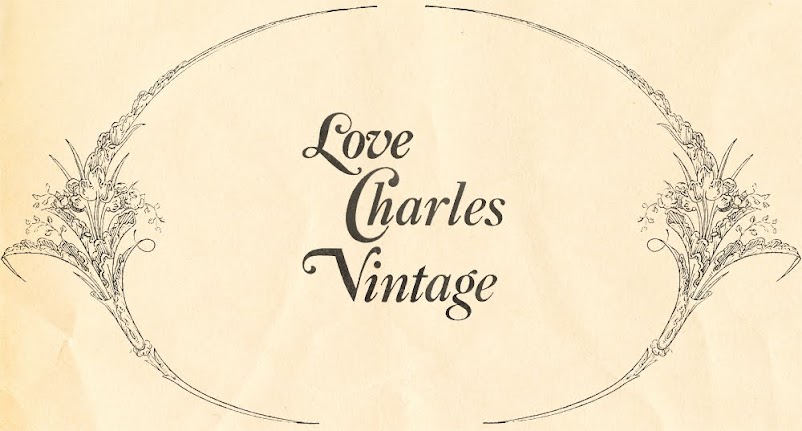
Hello Love Charles readers,
My name is Leah and I sell vintage clothing at Water Lily Thrift and also maintain an ethical style blog called Style Wise. I began thrifting regularly during my freshman year of college, mostly as a way to pass the time and shop without breaking the bank. I never imagined, while trying on old wedding dresses and taking dressing room pictures with my roommate, that thrifting would develop into anything more than a hobby.
But things began to change for me the day I read an article on fast fashion. I'd never heard the term before and, frankly, I had never considered that buying cheap, mass produced garments posed an ethical dilemma. I was ignorant in a way that baffles me now to the way my clothing was produced, to the fact that real people slaved away to make me t-shirts and skinny jeans and cheap metal jewelry.
We have been taught to see ourselves primarily as consumers. We are judged by our taste. Fast fashion retailers like Forever 21 prey on our frantic need to stay on top of trends by providing cheap goods at lightning fast turnaround. But people with the same needs and aspirations as you and me must toil in poor working conditions for meager wages because their governments and economies don't provide the resources they need to thrive. Instead of carrying the banner of human rights to foreign lands, we as first world consumers and corporations take advantage of poor regulations, encouraging the longevity of social systems that fail to provide the basic liberties we take for granted.
I buy and sell second hand, first and foremost, because holding myself to a higher ethical standard is what I can offer as a human being. But channeling my purchasing power into the second hand market doesn't feel like a sacrifice. Vintage clothing provides greater space for creativity in the way that I dress. Items are often better quality, having been produced in small batches within the United States. Additionally, each garment carries with it a half-hidden history that I get to carry forward. And one of the fortuitous side effects is that I reduce waste by creating demand for something that already exists instead of something yet to be made.
I encourage you to see yourself as more than a consumer. You are a vibrant person who can impact the world through more than your wallet. But your spending habits do matter. Retailers will listen to the demands of their consumers. Spend your money on responsible garments and they'll make sure to provide them. Shop second hand. Shop vintage. Have fun with your clothes, knowing you're making a difference.
- Leah




Well said! I agree with you 100% on all levels. Conscious consuming is something most people don't even think about. The environmental effects paired with human slavery in sweat shops that, more than likely not, are comprised of workers who have been kidnapped and trafficked into countries foreign to them is enough to keep me out of stores like F21, H&M, etc.
ReplyDelete